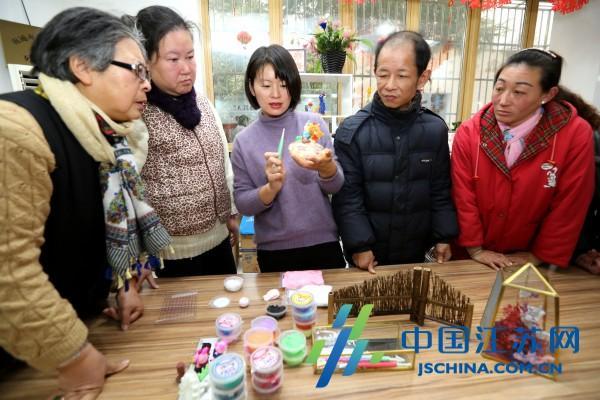France's cost of living法国民众的生活费用
Purchasing-power disparity购买力悬殊
French shoppers want lower prices, but not more competition法国消费者想要更多低价,而非更多竞争

THAT coffee or cornflakes are cheaper in a German supermarket than a French one is bad enough. That French-owned products, such as Danone yogurt, Vittel water or Riches Monts cheese, are too is an affront. A basket of identical items costs 30% more in France, says a study by La Tribune, a daily. 德国超市销售的咖啡或玉米片要比法国超市的更为便宜,这已经够糟糕的了。而法国自家企业生产的产品,例如达能酸奶,维特尔矿泉水或者Riches Monts奶酪,在德国超市的销售价格也要远远便宜于国内超市,这实在是一种冒犯。据《法国论坛报》的调研显示,一篮同样商品在法国需多花费30%。

Rising fuel and food prices are worrying consumers all over Europe. Concerns about purchasing power are an especially hot issue in France. President Nicolas Sarkozy's unpopularity owes much to his failure to boost it as he promised. Inflation, at a 17-year-high, is not the only problem. This week, he dropped in on a Yoplait yogurt factory to declare that “there is no reason why we should have the highest prices in Europe.” 整个欧洲大陆,上涨的燃料价格和食物价格正令消费者忧心忡忡。对购买力的担忧在法国尤其是一个热点。法国总统萨科齐不受欢迎的原因多半要归咎于其未能兑现提高民众购买力的承诺。尽管法国的通货膨胀达到17年来的最高水平,但这并非唯一的问题。本周,萨科齐总统在参观优诺(YOPLAIT)酸奶制品公司时宣称:“我们不应拥有全欧洲最高的物价”。

Yet if voters want lower prices, they are less enthused by more competition. Christine Lagarde, the finance minister, is promoting a new law to inject more competition into retailing. It would make it easier to build out-of-town hypermarkets, and would scrap a rule stopping retailers from selling below cost. In many places, hypermarkets have de facto local monopolies, and so are protected from competing with each other or with the big discounters, which account for only 13% of food retailing, next to 30% in Germany. Nor can hypermarkets negotiate freely with suppliers, which retailers say allows big brand-names to impose high prices. 然而,即便选民是想要获取更为低廉的价格,但对商家彼此之间的竞争却不感兴趣。法国财政部长拉加德(Christine Lagarde)正积极推动新法的颁布,以在零售行业注入更多的竞争活力。新法将使在郊区建立大型超市更为容易,并撤消了零售商不得以低于成本价销售商品的限制。在许多地方,大型超市事实上已处于垄断地位,进而免收超市彼此之间的竞争或者同折扣商店之间的竞争。事实上,折扣商店只占法国食品零售业的13%,而德国是将近30%。此外,大型超市还被限制同供应商自由协商定价,零售商表示这会使知名厂商单方强行采取高价。
So why are consumers not cheering on the new law? The Socialists say the fringes of historic towns will be destroyed. Deputies in Mr Sarkozy's own party, lobbied by food producers and small shopkeepers, want to dilute the text. When asked by Ifop, a pollster, how best to raise their purchasing power, only 42% of respondents picked out more retail competition. Some 85% preferred a cut in the sales tax, and 72% a rise in the minimum wage. Scepticism about competition has deep roots, ranging from a lingering influence of Marxism to a fear of American capitalism trampling the French way of life. Above all, voters see competition through the eyes of producers—as a menace to jobs and factories—rather than consumers. 为何消费者对新法并不欢呼雀跃呢?社会党人表示这将会毁坏名城古镇的外围。在萨科齐领导的党派内,众议员受食品生产商和小店主的游说,希望对新法的条款加以修改。在民意测验机构Ifop就如何最好地提高民众购买力进行调查时发现,仅42%的受访者认同更多的零售竞争。约有85%的受访者更倾向要求减轻营业税,而72%的受访者要求提高最低工资标准。法国民众对竞争活动的怀疑已是根深蒂固,从马克思主义挥之不去的影响到对美国资本主义会破坏法国生活方式的恐惧。最为重要的是,选民是以生产商的眼光而非消费者的眼光来看待竞争行为,认为竞争活动会威胁就业岗位和工厂。

This may explain why Ms Lagarde's new law does not touch other regulated areas, such as pharmacies, taxis and notaries. Supermarkets are still not allowed to sell non-prescription drugs. E.Leclerc, a hypermarket giant, was recently taken to court by pharmacists for running a television advertisement claiming that it could sell household medicines a lot cheaper if it were allowed to. The court ruling against the advertisement was overturned on appeal. But the pharmacists' monopoly remains—with Mr Sarkozy himself ruling out any change on the ground that pharmacies are not a business but a “public service”. 这也许能够解释拉加德的新法为何并未触及的其他管控领域,如制药行业、出租车业和公证部门。目前,大型超市仍被限制出售非处方药。大型超市巨头E.Leclerc在最近因一则电视广告被药商告上法庭。在电视广告中,E.Leclerc声称,在获取法律的许可下,公司可销售更为便宜的家庭药物。法院对该广告的裁决在上诉中被推翻。在萨科齐对药房是“公共服务行业”,而非商业部门的立场尚未做出改变时,法国药商的垄断地位将会仍存。
,




